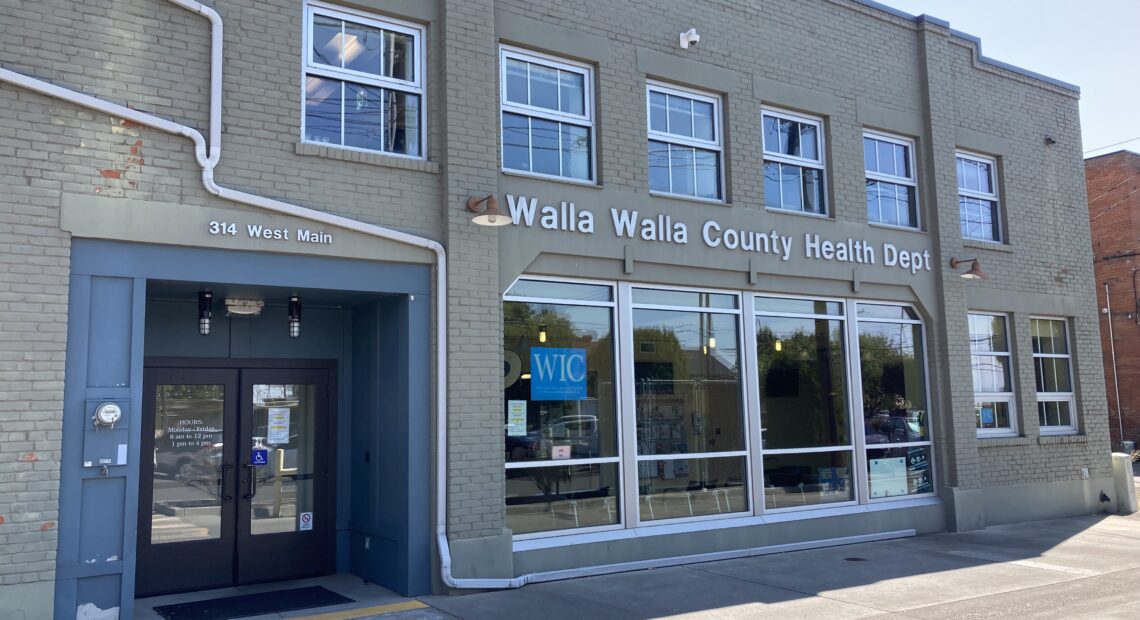
Walla Walla County punts on sales tax to fund affordable housing
Listen
(Runtime 1:02)
Read
On Monday, Walla Walla’s county commissioners chose not to pass a sales tax increase that would have raised $1.1 million a year for affordable housing and behavioral health programs.
The increase would have come through House Bill 1590, a Washington state law that enables local governments to use sales tax to address the housing crisis. It would have raised sales tax by 0.1% across the county, costing the average resident around $16 per year, according to estimates from the Walla Walla County Council on Housing.
City and county governments have the authority to enact HB 1590 themselves. They can also put the choice to voters through a ballot measure. In Walla Walla County, the commissioners opted for the latter.
All of the commissioners said they struggled with the decision, losing sleep over what to do. Jenny Mayberry, District 1’s commissioner, described it as “probably one of the toughest decisions since I started.”
Even during the meeting, she appeared conflicted. “I am still pretty torn,” she said. “I know that we need it, but I don’t just represent myself.”
The two other commissioners seemed more confident in their decision to ultimately put the measure on a ballot. “I firmly think this needs to go in front of everybody,” said Gunner Fulmer, of District 3. “I truly think it would pass,” added Todd Kimball, of District 2.
This was not the result that housing and behavioral health advocates were hoping for.
“We were hugely disappointed by the lack of leadership from the county commissioners,” said Danielle Garbe Reser, CEO of the nonprofit Blue Mountain Action Council. “We’re operating in a behavioral health and affordable housing desert, and we’re doing it now with our hands tied behind our back.”
Garbe Reser said that she and other leaders have been discussing this topic with the commissioners for over a year. “They are well informed of the problems in our communities,” she said. “And they are choosing not to act themselves, but kick the can down the road.”
Everett Maroon, the executive director of Blue Mountain Heart to Heart, a public health organization, agreed.
“Why spend the last 15 months working with this group and asking for so much labor and energy and answers to questions, just to then throw this out to the community?” he said. “It would have totally been in their wheelhouse and their authority to just say, ‘Yeah, this is a positive step forward for our community — let’s do it.’”
Putting a measure on the ballot could cost $60,000, plus the cost of education, according to an initial estimate from Sam Jackle, the county’s senior homeless housing coordinator. That amount could vary depending on when the measure is placed on the ballot.
In their presentations, supporters of the measure said that around a quarter of Walla Walla County residents are severely cost burdened, meaning they spend more than half of their income on housing. They also cited a dearth of behavioral health providers.
They said the money from HB 1590 could help build permanent supportive housing and a dedicated behavioral health facility, as well as recruit more providers to the region. The programs would have served families earning 60% or less of the area’s median family income, which is approximately $54,000 per year.
Enacting HB 1590 would have also enabled the county to qualify for more matching dollars from the state. “It’s not a magic wand of a bill, but it is one tool in the tool kit,” Garbe Reser said. “And we need all the tools at our disposal.”
Walla Walla County residents could see a ballot measure regarding HB 1590 as early as next spring.
















